Beyond 32? The cases for and against NHL expansion
"Ladies and gentlemen, your Seattle Kraken!"
The rapper Sir-Mix-A-Lot introduced the NHL's newest team to 47,313 fans gathered inside T-Mobile Park and those watching on television Monday. The game-ready Kraken players, eye black and all, then strutted a catwalk flanked by fire and flying fish before halting for the national anthem. The Vegas Golden Knights, the league's second-newest team, were positioned nearby.
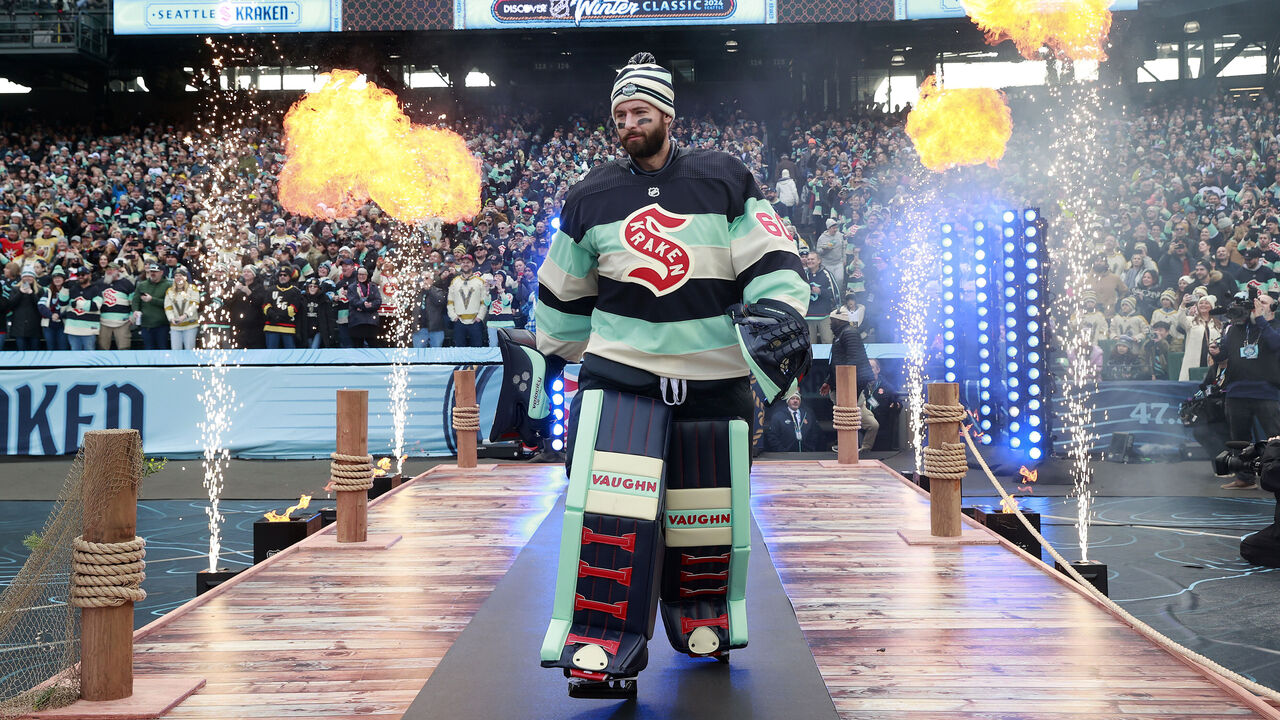 Kraken goaltender Chris Driedger walks to the ice surface at T-Mobile Park Jeff Vinnick / Getty Images
Kraken goaltender Chris Driedger walks to the ice surface at T-Mobile Park Jeff Vinnick / Getty ImagesThe scene was a bit on the nose for a Seattle-based outdoor game. But that's the allure of the Winter Classic; it's a celebration of hockey and the host city.
This particular Classic doubled as a celebration of the league. Pitting seven-year-old Vegas against third-year Seattle on New Year's Day was a victory lap of sorts for the NHL. And why not: both franchises have been wildly successful.
So successful, in fact, that every time commissioner Gary Bettman is in front of a microphone, he's asked about expanding beyond 32 teams. Bettman tends to respond with two messages: Atlanta, Salt Lake City, Houston, and Quebec City are all clearly interested, and expansion isn't atop the priority list.
"I don't have a formal expansion process on the horizon," Bettman told Bally Sports Southwest on Dec. 18. "But, we always listen when people are expressing their interest to us, and it's very flattering to know there are so many places that would also like to have an NHL team."
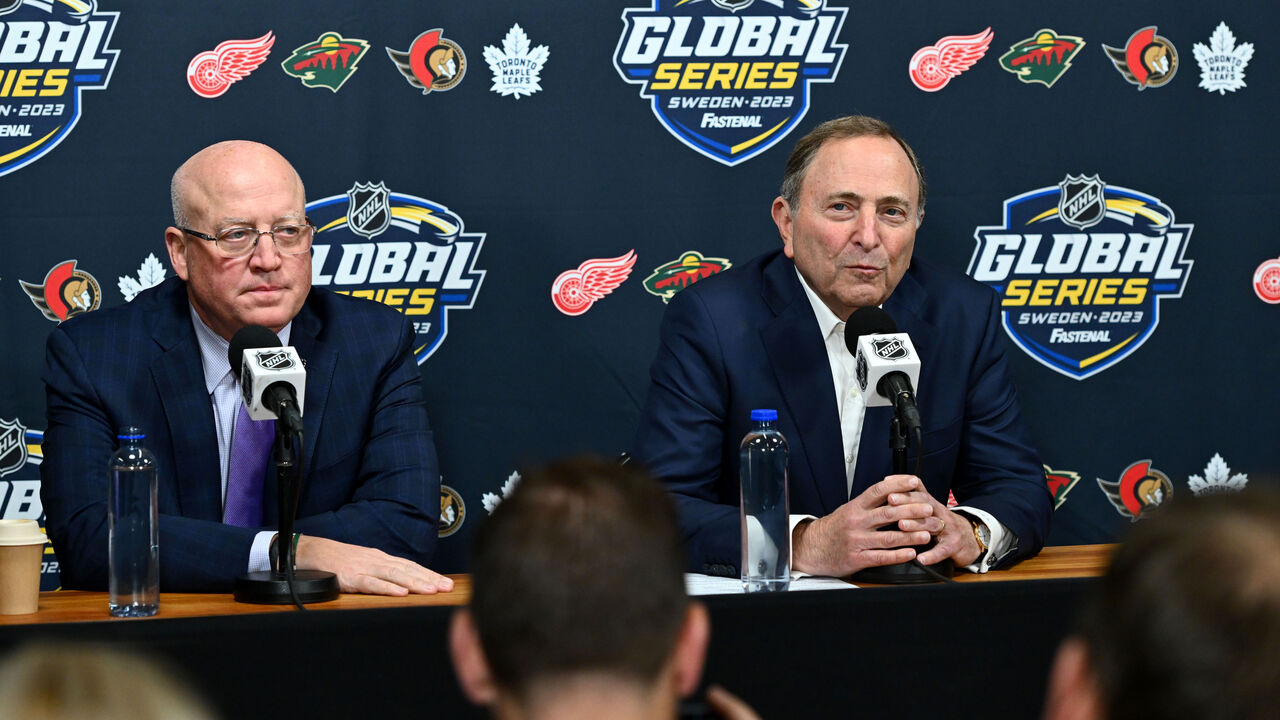 Deputy NHL commissioner Bill Daly and NHL commissioner Gary Bettman address media in Sweden Ben Jackson / Getty Images
Deputy NHL commissioner Bill Daly and NHL commissioner Gary Bettman address media in Sweden Ben Jackson / Getty ImagesWhat Bettman hasn't said in these interviews is informative too. He hasn't outright dismissed expansion or changed the subject - he's left the door open.
"We take meetings, we listen, but we're not about to say, 'If you want an expansion team, submit your application by X date.' We're not doing that," he told reporters in mid-November, according to NHL.com's Bill Price. He added, "At some point, somebody may create a proposal that we find so intriguing that we decide to explore it and maybe pursue it. But that's not what we're doing now."
Translation: It's definitely possible the NHL will expand past 32 teams one day.
Should it, though? Let's discuss the cases for and against expansion.
The case for expansion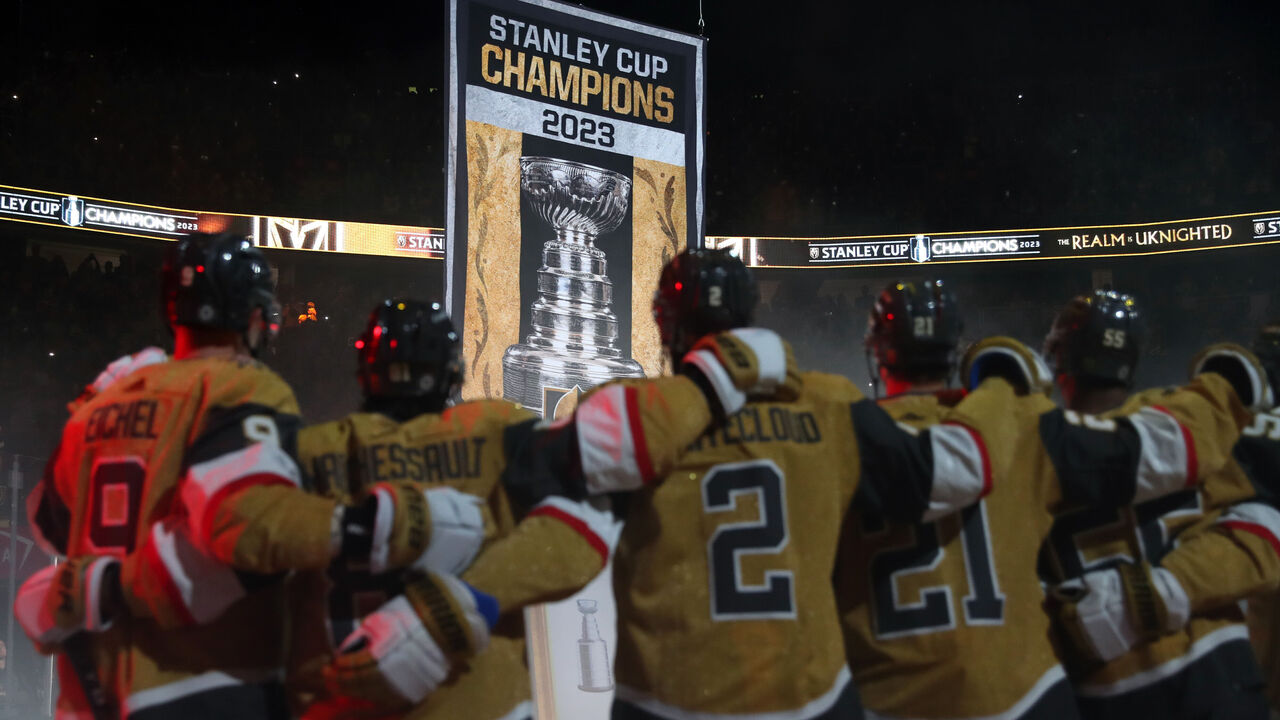 Golden Knights players watch the team's 2023 championship banner being raised Zak Krill / Getty Images
Golden Knights players watch the team's 2023 championship banner being raised Zak Krill / Getty ImagesThe NHL's public relations department noted earlier this week that league business was "stronger than ever" in the calendar year of 2023 and that revenues for the 2023-24 season are projected to "exceed $6 billion."
Pro sports leagues want to always tout growth, and expansion can help a mature league like the NHL grow. Expansion, at a basic level, puts money in owners' pockets, gives broadcast partners more inventory, and creates jobs for the players' association.
Win-win-win.
"If it starts with a capital 'B,' the owners are going to be interested and excited. Very, very excited," one assistant general manager for an NHL team said of the potential value of expansion fees. NHL sources were granted anonymity to freely discuss league business.
Expansion fees don't count toward hockey-related revenue, or HRR, which means the players wouldn't get a kickback from, say, a $1-billion entry fee. Still, one veteran agent sees plenty of long-term upside: 23 new jobs per team, and the immense opportunity untapped markets can provide.
"We're in the entertainment business. We can't forget that," said the agent, who represents some of the sport's biggest names. "Players should be into this idea of expanding again. It'll grow the game, grow revenues over time."
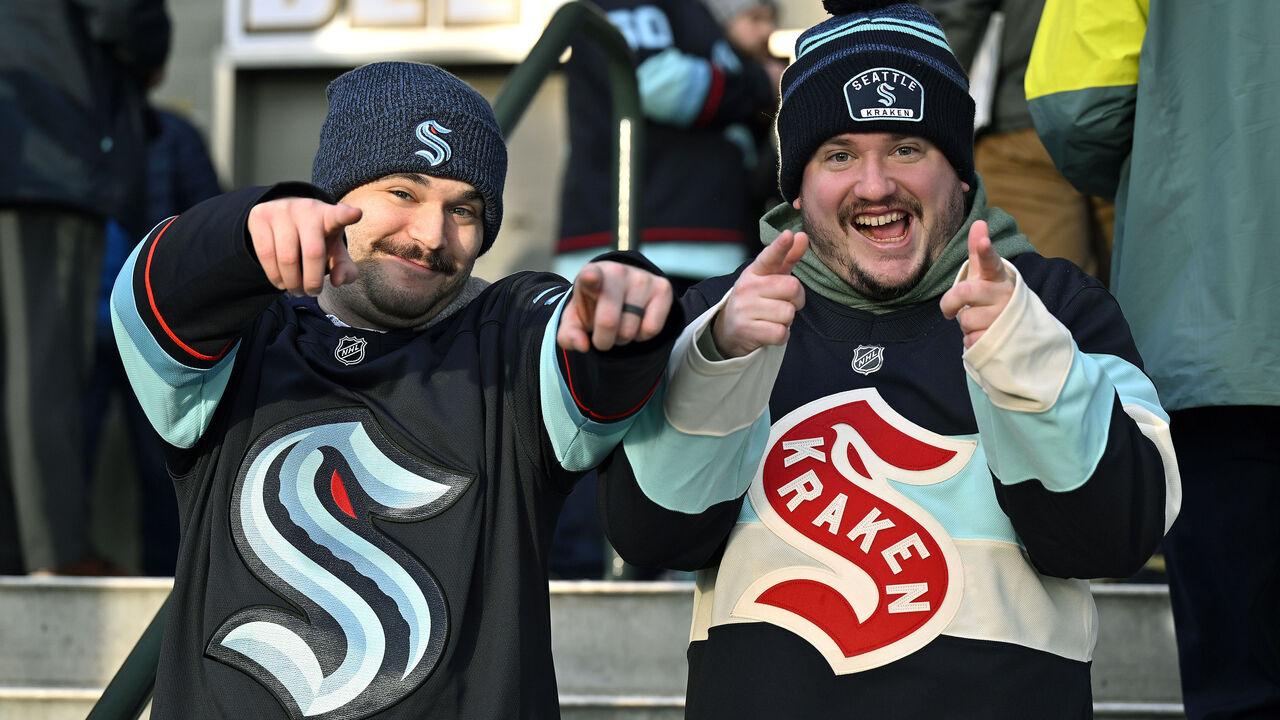 Kraken fans take in the Winter Classic in Seattle Alika Jenner / Getty Images
Kraken fans take in the Winter Classic in Seattle Alika Jenner / Getty ImagesVegas paid $500 million to enter the league in 2017. Seattle paid $650 million four years later. The small-market Ottawa Senators were recently purchased for $950 million by Michael Andlauer, who in turn sold his 10% minority interest in the big-market Montreal Canadiens at a reported $2.5 billion enterprise value. In late 2023, both Forbes and Sportico estimated the average value of an NHL team at roughly $1.3 billion - a 29% jump over 2022.
The NHL's in a sweet spot. Franchise values are through the roof. There's proof of concept in Vegas and Seattle, which have quickly become key revenue generators and, thanks in part to favorable expansion draft rules, highly competitive teams. (Heck, there's no better advertisement for expansion than the Golden Knights winning the Stanley Cup in Year 6.) And, with several markets to choose from and no shortage of motivated rich people (nine groups submitted bids for the Senators), the league has power and leverage.
"Bettman is concerned about growing franchise values over time," said David Carter, a University of Southern California professor and a longtime sports industry consultant. "So, if you bring on a team and that team is financially stable - if it has enough money to be competitive on the ice and run a strong business operation - that team will elevate the other boats in the league."
A better question might be: Why wouldn't the NHL want to capitalize on this moment of growth? The league ballooned from 21 to 28 teams in the 1990s. This could be another boom - from 30 to 34 during the 2010s and 2020s.
"At some point, you reach a tipping point where expanding again becomes too much. But the interest in hockey right now is very strong," said Chris Gear, the former longtime chief legal officer and assistant GM for the Vancouver Canucks. "The NHL might be wise to strike while it's hot."
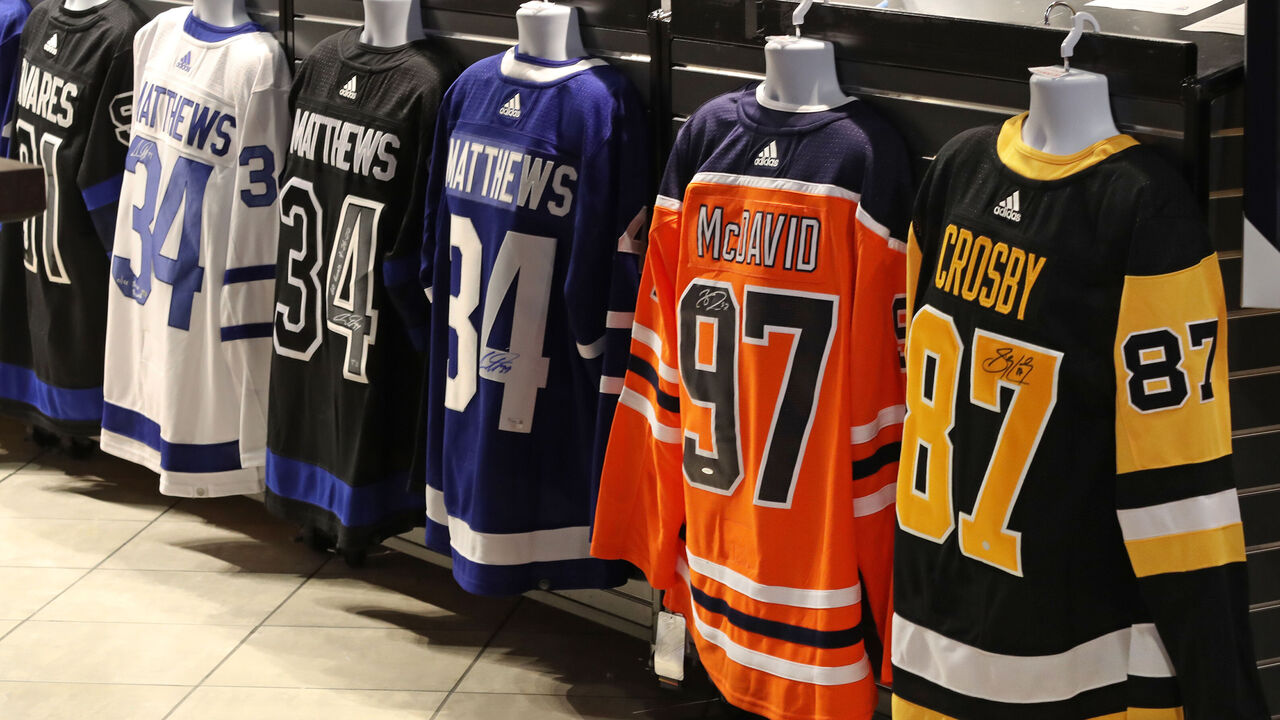 Claus Andersen / Getty Images
Claus Andersen / Getty ImagesGear, who now runs a consulting agency and law firm called Blackfin Sports Group, mentioned an interesting wrinkle: less travel. With two more teams, one per conference, the NHL could regionalize its divisions better to reduce costs, lessen the physical and environmental toll of air travel, and promote rivalries. (As for balance, the locations that Bettman commonly cites give the league options. Houston and Salt Lake City could join the Western Conference, while Atlanta and Quebec City could join the East.)
One NHL GM said he isn't opposed to adding a pair of teams, as long as the expansion draft rules remain favorable. That may sound counterintuitive (why would a rival GM want to lose two good players?). However, the executive explained that if the existing owners are going to accept an infusion of cash through fees, they should be OK with handing over some NHL-caliber talent.
Expansion would force dozens of players previously in lower leagues into the NHL. This could lead to a watered-down product (as discussed in the next section), but it may also create an environment that caters to true superstars.
"Goal-scoring is up. Maybe that's directly related to the widening of the gap between the very top and very bottom of the league, player-wise," Gear said of the jobs created by recent expansion. "More goals create more excitement, which adds eyeballs and sponsors. Expansion could be seen as a good thing for the product. It really depends on your frame of reference."
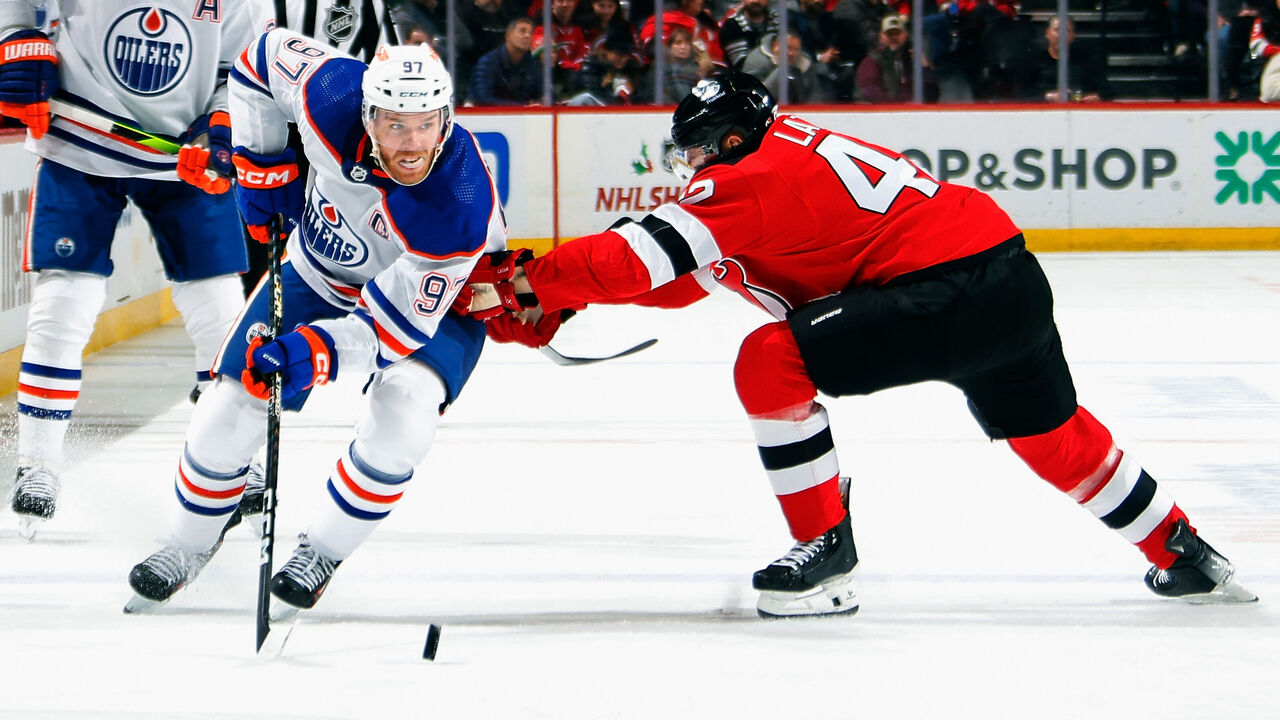 Edmonton Oilers star Connor McDavid skates past New Jersey Devils forward Curtis Lazar in a December game Bruce Bennett / Getty ImagesThe case against expansion
Edmonton Oilers star Connor McDavid skates past New Jersey Devils forward Curtis Lazar in a December game Bruce Bennett / Getty ImagesThe case against expansionThe first counterargument to expansion is the Arizona Coyotes. Unstable throughout their 27-year run in the Phoenix area, the franchise is currently playing out of a 4,600-seat arena on the Arizona State University campus.
The team is finally competitive on the ice, but the search for a permanent, appropriately sized building is dragging on, and the players' union is losing patience.
As NHLPA executive director Marty Walsh puts it, NHL players deserve an NHL rink.
"There's lots of rumors about two more expansion teams coming. I would say three expansion teams. The first one, really, is Arizona - trying to figure out what's going on with Arizona," Walsh, who's in his first full season, said in November during a keynote interview at the PrimeTime sports conference.
He later added: "You can't have 31 teams playing in a full arena and then one playing in a college arena where you're the second citizen, where you're the second tenant."
That last remark hits on the anti-expansion crowd's main talking point: How can the NHL consider expansion if one of its franchises is a prime candidate for relocation? (Pro-expansion types would respond: OK, that's fair. How about two expansion teams and the Coyotes relocate?)
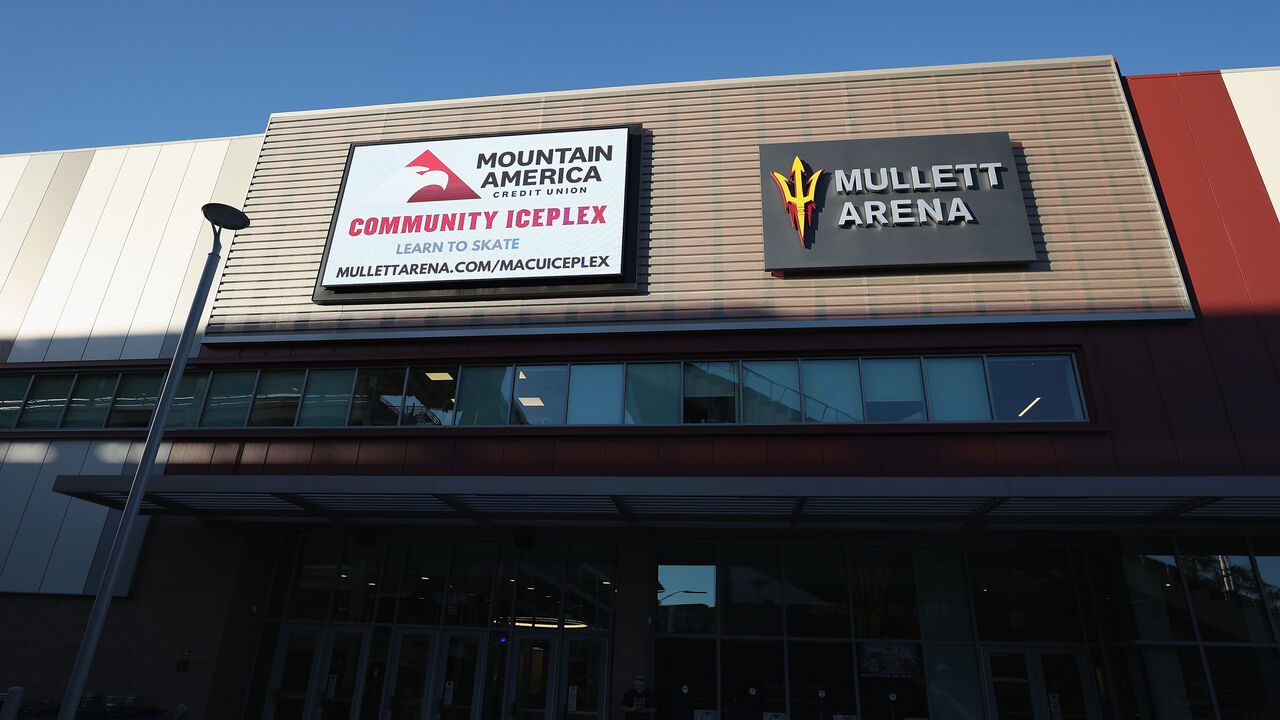 Arizona State University's Mullett Arena in Tempe, where the Coyotes also play Christian Petersen / Getty Images
Arizona State University's Mullett Arena in Tempe, where the Coyotes also play Christian Petersen / Getty ImagesThe quality of the on-ice product is critical to the overall health of the league. By diluting the talent pool, expansion may make games less competitive and entertaining. The best league in the world should have high standards.
In talking with 15 people for this story, the general sentiment was that the on-ice product has been largely unchanged since Vegas and Seattle arrived. It's perhaps slightly worse. However, growing to 33 or 34 teams would add 23 or 46 roster spots that would be filled by players currently in the minors. It's impossible to know for sure, but the league may already be up against the talent threshold.
"The game is growing and there's more countries playing and producing high-end players, so maybe overall there's a bigger talent pool to draw from and that balances everything out," Gear said. "But, I do think you want to be careful. If you expand too many times, too quickly - before that pool of players broadens enough - you might just be watering down the league a little bit."
One assistant GM wondered about the trickle-down effect. For instance, most first-round picks don't immediately make the jump to the NHL in the current 32-team climate. At 34 teams, depth-seeking GMs might feel like the 28th overall pick is the best option to fill out their roster, even though there's a chance that playing in the NHL as a teenager will hurt his development.
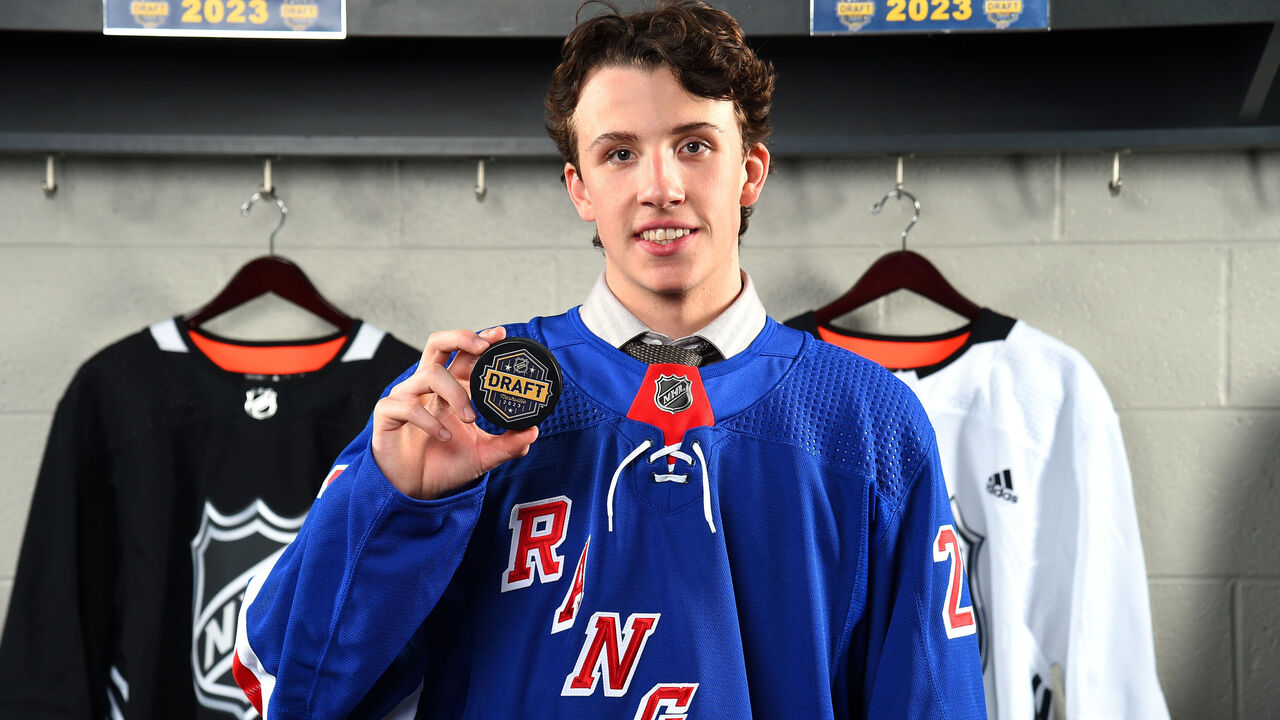 Forward Gabriel Perreault, selected 23rd overall by the New York Rangers in the 2023 draft Brian Babineau / Getty Images
Forward Gabriel Perreault, selected 23rd overall by the New York Rangers in the 2023 draft Brian Babineau / Getty ImagesMore food for thought from an NHL GM: The league has perfect symmetry - 32 teams, 16 per conference, eight per division, and half of the clubs make the playoffs. Expanding would throw off this tidy setup and probably lead the NHL to alter its playoff format, which the league consistently touts as the best.
Expansion wouldn't affect the way a fan follows their favorite team. But it would affect how they follow the rest of the league. The more teams and players, the harder it is to keep up. The average NHL fan in 2024 probably can't name more than three Columbus Blue Jackets players. Expand further and the average fan's connection to rival teams becomes even weaker.
One NHL player sees both sides. If you want to grow the game, you grow the business. At the same time, the NHL shouldn't expand for the sake of expanding. It's a slippery slope, he said, if you're chasing money. The player added that the league can't dismiss what makes the NHL great, whether it's the history of the Original Six or the modern parity and intense competition.
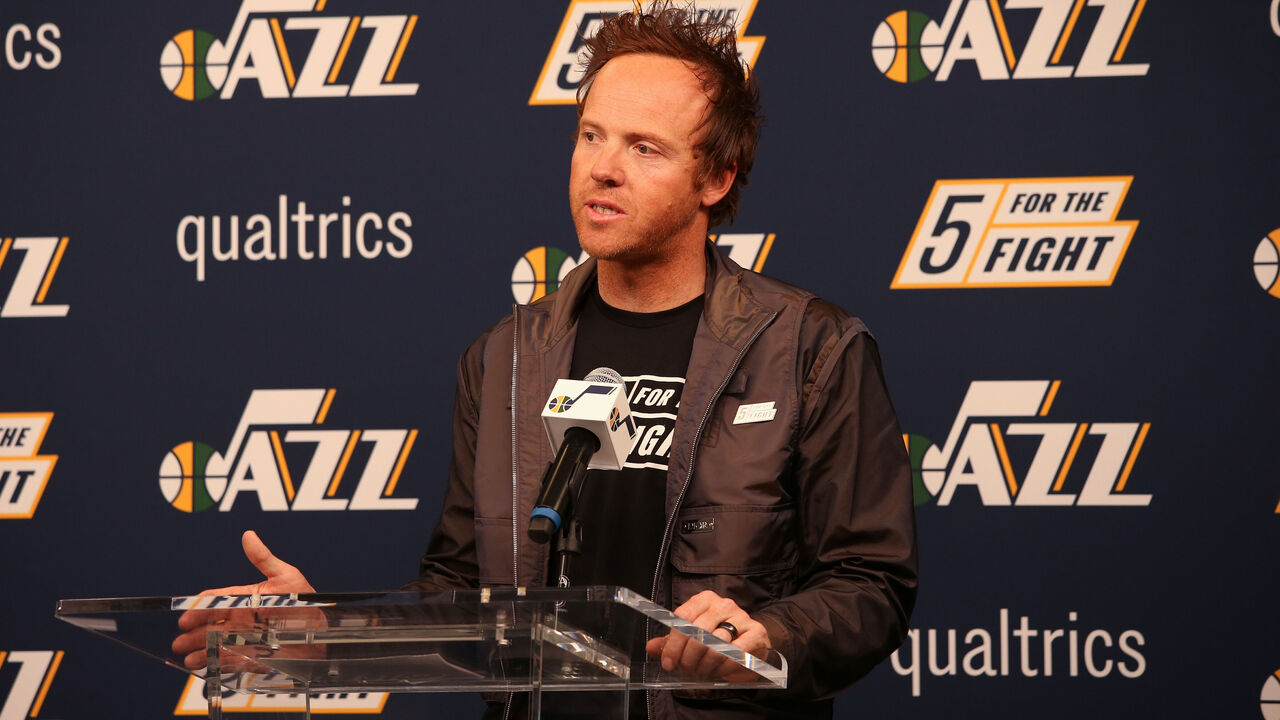 Utah Jazz owner Ryan Smith Melissa Majchrzak / Getty Images
Utah Jazz owner Ryan Smith Melissa Majchrzak / Getty ImagesThe final counterargument cited by sources is that just because the Golden Knights and Kraken have crushed it, that doesn't mean the markets expressing interest now will do the same. Quebec City has an NHL rink - but not enough corporate dollars. Salt Lake City has an impressive prospective owner in Utah Jazz owner Ryan Smith - but a small population. Atlanta is a massive market - but the NHL has already given it two chances. Houston appears to check off the boxes for ownership, market size and demographics, and a building, making it the lone city that doesn't face a significant hurdle.
Carter believes the NHL won't expand haphazardly. Bettman and his staff will be thorough and diligent. Still, the professor notes there's always risk involved in bringing a new owner, market, and team into the fold during a boom period.
"They're not just looking at money, but ultimately, money is what drives the day," Carter said. "The problem can be if the NHL allows for money to be virtually the only thing. That's when they run into trouble. They have to have owners who fulfill a strategic imperative for the league."
John Matisz is theScore's senior NHL writer. Follow John on Twitter (@MatiszJohn) or contact him via email (john.matisz@thescore.com).
Copyright (C) 2024 Score Media Ventures Inc. All rights reserved. Certain content reproduced under license.